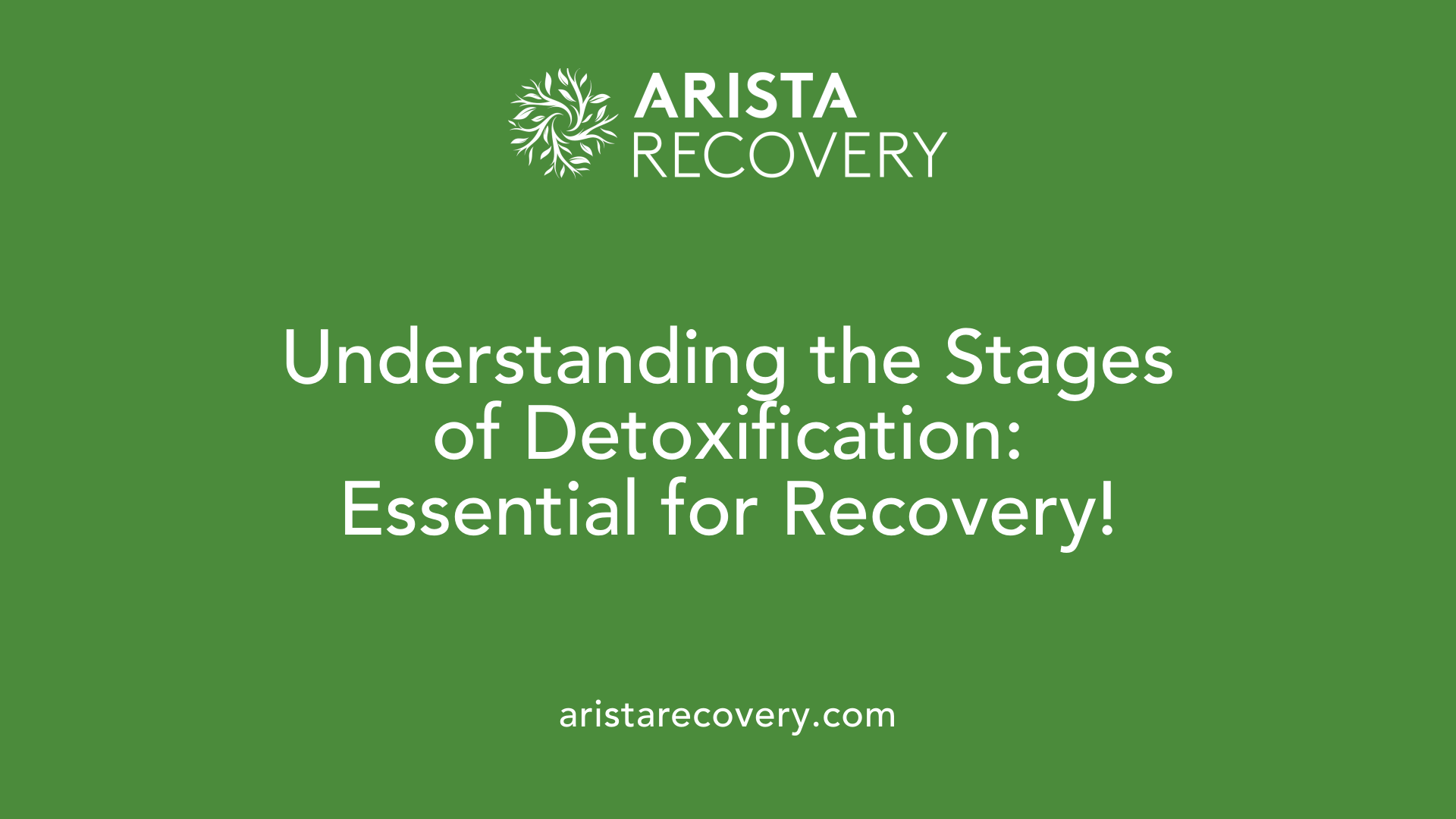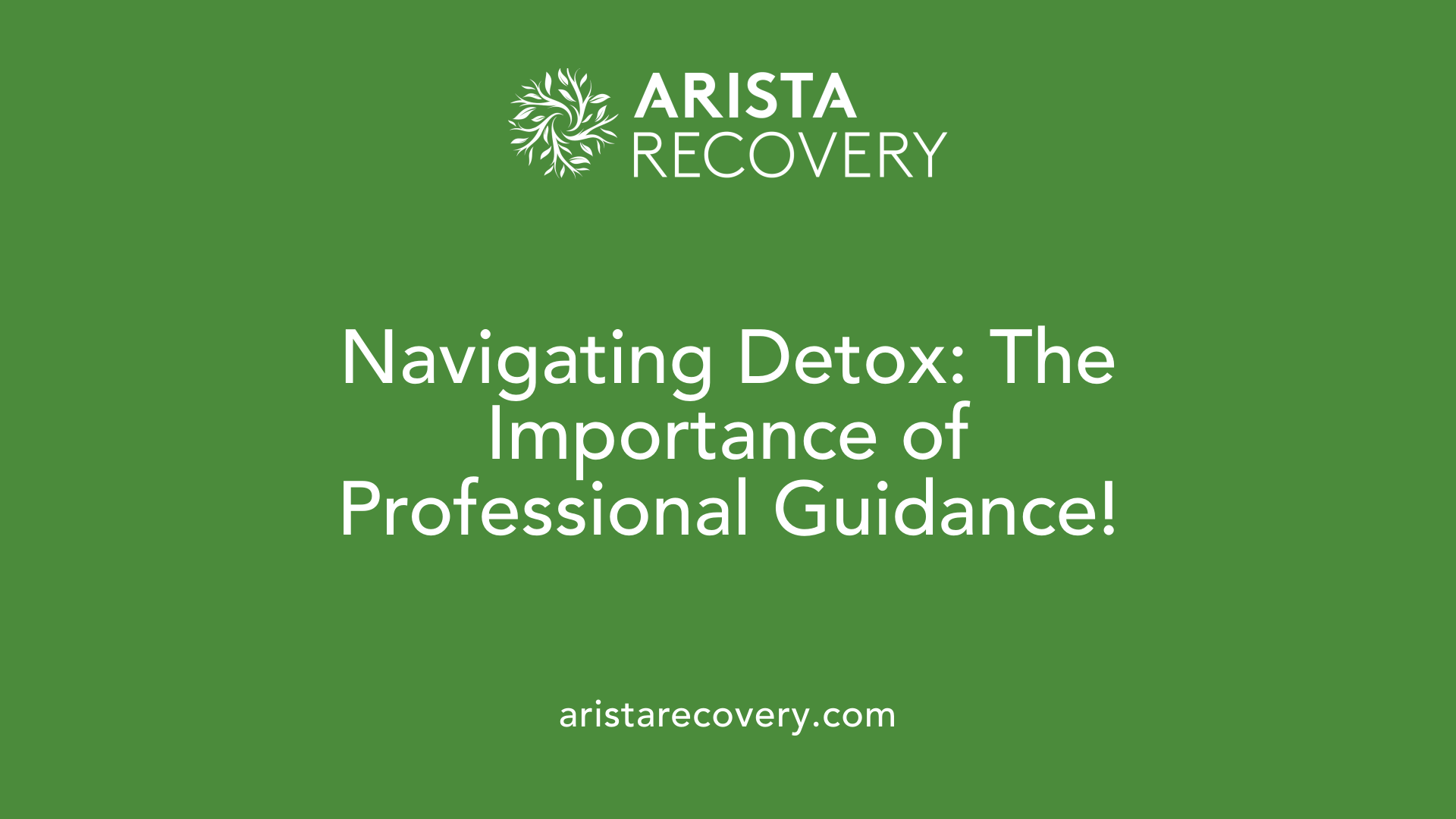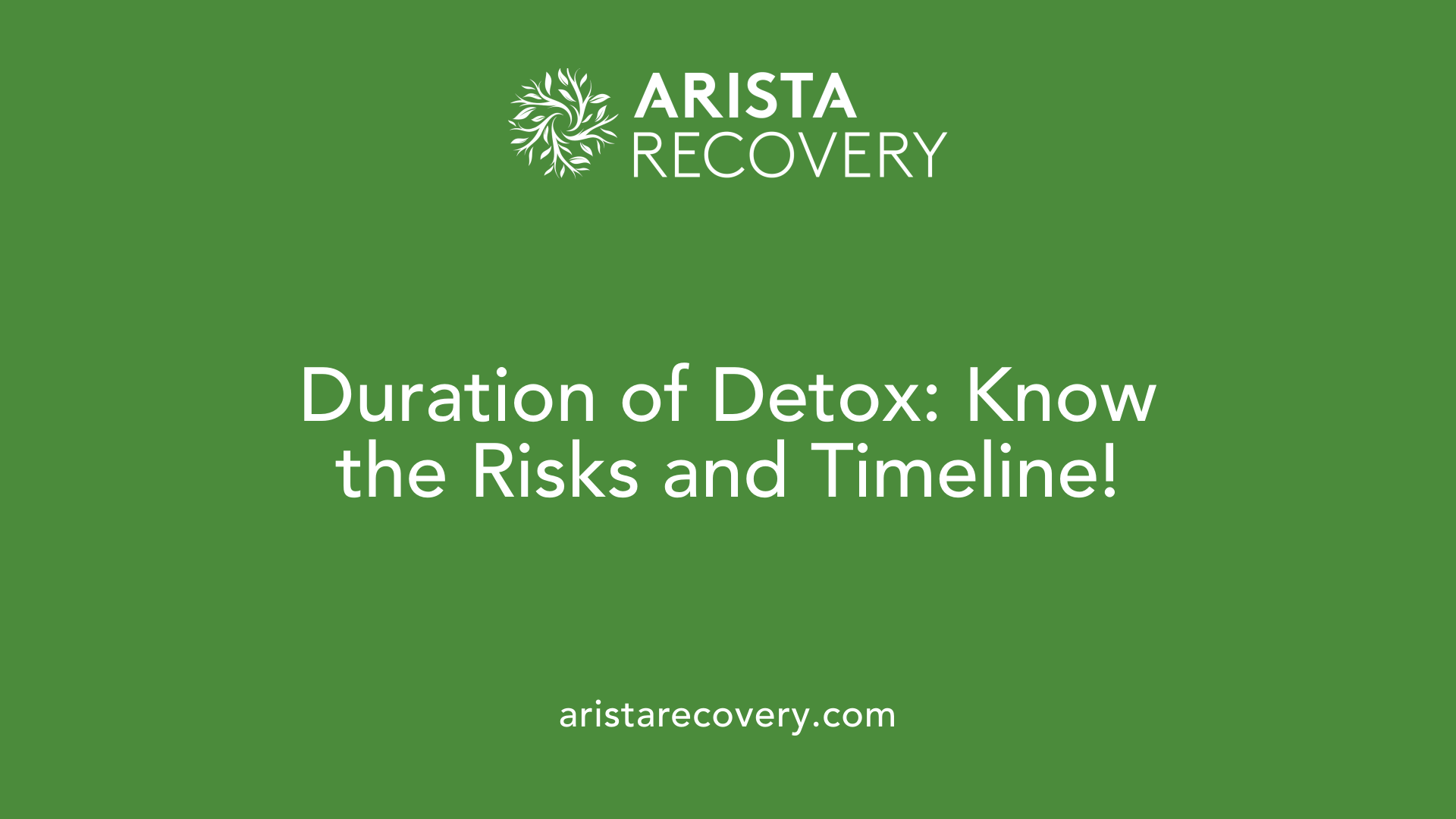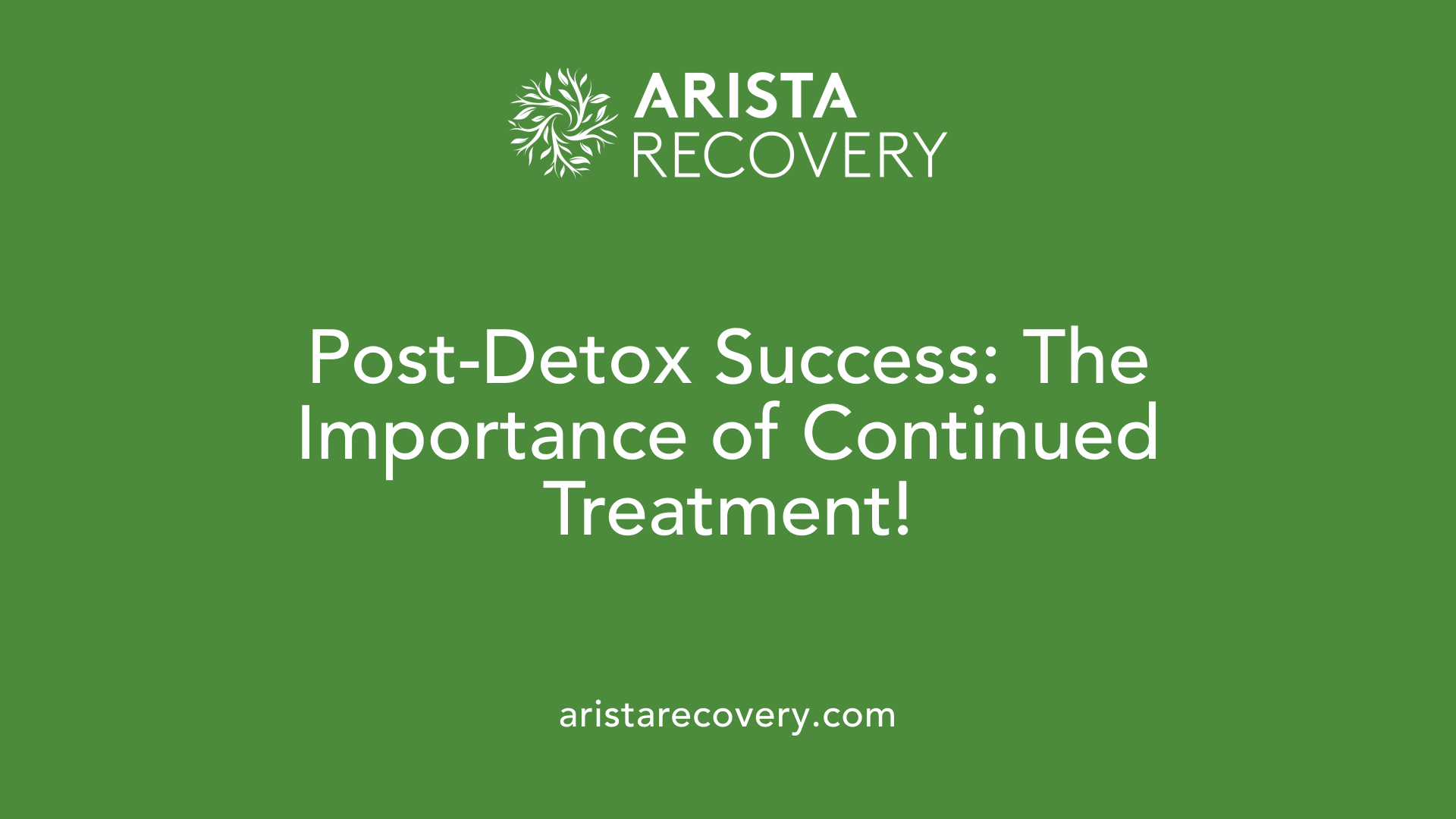
Understanding the Stages of Detox and What to Expect
Introduction to Detoxification
Detoxification is the initial and pivotal phase towards recovery from substance use, marked by the process of eliminating harmful substances from the body and managing withdrawal symptoms effectively. This period is crucial not only for physical stabilization but also for setting the stage for long-term recovery. While it often begins with the decision to quit, the journey through detox can vary widely among individuals based on the substance used, the duration and intensity of use, and personal health conditions. Understanding the stages of detox, what to expect, and the importance of medical supervision is essential for anyone considering this path to recovery.
Stages of Detoxification

What are the stages of detoxification and withdrawal?
Detoxification is a structured process that typically involves three critical stages:
1. Emerging Withdrawal Symptoms
This initial stage begins when a person stops using substances, typically starting within 6 to 12 hours for short-acting drugs like alcohol. Symptoms may remain mild initially but can escalate quickly, manifesting as anxiety, sweating, or tremors.
2. Peak Withdrawal Symptoms
As the detox process continues, symptoms may reach their peak intensity. For alcohol, this can occur around 24 to 72 hours after cessation, leading to severe manifestations like hallucinations or seizures in some cases. Opioid withdrawal generally begins 8-24 hours after the last use, showcasing symptoms such as pain and agitation.
3. Subsiding Withdrawal Symptoms
Following the peak phase, withdrawal symptoms typically begin to decline. This phase can last from several days to weeks, depending on the substance involved. Although relief is often felt, individuals must remain vigilant, as some symptoms can occasionally linger.
What about Post-Acute Withdrawal Syndrome (PAWS)?
After detox, individuals may face Post-Acute Withdrawal Syndrome (PAWS). Symptoms such as mood swings, anxiety, and cognitive difficulties can persist for weeks or even months post-detox. Understanding PAWS is vital, as it may pose significant risks for relapse during recovery.
| Stage of Detoxification | Typical Timeline | Possible Symptoms |
|---|---|---|
| Emerging withdrawal symptoms | 6-12 hours after last drug use | Anxiety, sweating, tremors |
| Peak withdrawal symptoms | 24-72 hours after last drug use | Severe hallucinations, seizures |
| Subsiding withdrawal symptoms | Days to weeks after peak phase | Lesser intensity physical and emotional symptoms |
| Post-Acute Withdrawal Syndrome | Weeks to months post-detox | Anxiety, depression, sleep disturbances |
Understanding these stages helps individuals prepare for and navigate the detoxification process successfully, enhancing the chance for long-term recovery.
What to Expect During Detox and the Role of Professional Support

What should one expect while detoxing, and why is professional assistance important?
During detoxing, individuals may face a wide array of symptoms that can significantly fluctuate in intensity—from mild discomfort to severe withdrawal challenges. These symptoms vary based on the substance involved and individual health conditions. Commonly experienced withdrawal reactions include:
- Intense Cravings: A strong desire to consume the substance again.
- Nausea and Vomiting: Physical reactions as the body seeks to expel toxins.
- Insomnia: Difficulty sleeping, which can exacerbate discomfort.
- Anxiety and Irritability: Mood disturbances as the body and mind adjust to the absence of the substance.
- Physical Symptoms: Such as tremors, excessive sweating, fatigue, muscle pain, and persistent headaches.
The detoxing process can be taxing on the body, and understanding these symptoms is vital for anyone going through addiction recovery.
Why is medical supervision crucial during detoxification?
Professional assistance is critical during detox for several reasons. First, withdrawal symptoms can escalate quickly, and some may become life-threatening, especially in the case of substances like alcohol and benzodiazepines. Medical professionals are trained to monitor these symptoms closely and can intervene when necessary, alleviating discomfort and identifying any immediate health risks.
Additionally, medical supervision offers a structured setting that promotes safety and comfort. Healthcare providers can administer medications aimed at easing withdrawal symptoms, thereby increasing the chances of a successful detox experience. The emotional support from trained professionals fosters a more positive atmosphere, making it easier for individuals to focus on their recovery journey.
Understanding the role of healthcare professionals in detox
Healthcare professionals, including doctors, nurses, and counselors, play a diverse role during the detoxification process. They ensure:
- Continuous Monitoring: Regular assessment of vital signs and withdrawal symptoms to ensure patient safety.
- Personalized Treatment Plans: Customized strategies based on individual needs and assessments, making the detox experience more effective.
- Crisis Management: Immediate response to any potential medical emergencies that may arise.
In conclusion, navigating through detox is a complex process where professional support can significantly optimize outcomes, making the journey toward recovery more manageable.
Duration of Detox and Withdrawal Risks

How long does it generally take for the body to detox, and what are potential withdrawal risks?
Detoxification generally ranges from 3 to 10 days, yet this timeline is heavily influenced by various factors such as the type of substance used, the frequency of use, and individual health characteristics. For example, alcohol detox may stabilize within a week, whereas individuals withdrawing from opioids might experience a shorter but intense phase of discomfort lasting several days.
During detox, individuals may encounter both acute withdrawal symptoms—such as sweating, shaking, and severe anxiety—and post-acute withdrawal symptoms (PAWS). PAWS can emerge weeks or months after detoxification, complicating the recovery and often involving intense cravings and psychological challenges.
It's paramount to approach detox under medical supervision. Withdrawal symptoms, depending on the substance, can be life-threatening; serious cases of alcohol withdrawal can lead to delirium tremens, which may be fatal if not properly managed. Overall, while detox is the critical first phase of treatment, it is essential to follow it with comprehensive therapy, such as counseling and behavioral therapies, to bolster long-term recovery and reduce the risk of relapse.
| Detox Duration | Substance Example | Withdrawal Risks |
|---|---|---|
| 3-10 days | Alcohol | Delirium tremens can be fatal |
| 7-10 days | Opioids | Intense discomfort, cravings |
| 5-14 days | Benzodiazepines | Seizures, severe anxiety |
| Varies | Stimulants | Fatigue, depression, cravings |
Physical and Psychological Challenges in Detox
What are the physical, emotional, and mental challenges of detox?
Detoxification presents numerous challenges, both physically and psychologically, as individuals adjust to the absence of substances. Physical withdrawal symptoms can manifest in various ways, such as:
- Muscle tension
- Racing heart rate
- Difficulty breathing
- Hallucinations
These symptoms can create significant discomfort and may even lead to dangerous situations without appropriate medical oversight. For instance, individuals detoxing from alcohol may experience severe complications like delirium tremens if left unmanaged.
On the emotional side, individuals often grapple with:
- Heightened anxiety
- Increased irritability
- Feelings of extreme loneliness
These emotional fluctuations can make the detox process more challenging, leading to potential setbacks or relapse if not properly supported.
Cognitively, many individuals encounter mental recovery challenges such as:
- Poor concentration
- Impaired memory
Recognizing these symptoms is crucial, as they can significantly impact both the detox process and the individual’s ability to engage in subsequent treatment effectively. Proper support through this phase can greatly enhance detox outcomes and facilitate a smoother transition into ongoing recovery efforts.
Inpatient vs. Outpatient Detox Options
What are the differences between inpatient and outpatient detox options?
Inpatient and outpatient detox options cater to different needs and circumstances surrounding substance use disorders. Inpatient detox centers offer 24-hour care under medical supervision, providing a controlled environment ideal for individuals dealing with severe addiction or those at risk for life-threatening withdrawal symptoms. This setting enables immediate response to any emergent health needs and fosters a structured environment that is crucial for the initial stages of sobriety.
Conversely, outpatient detox programs allow individuals to undergo detoxification while living at home and maintaining their daily life activities. This option can be beneficial for those with supportive home environments who might have a lower risk for severe withdrawal symptoms. However, it requires a high degree of personal accountability and may not provide the same level of medical safety if withdrawal symptoms escalate.
Benefits of inpatient care
Inpatient detox has several advantages:
- High level of supervision: Constant medical oversight ensures that withdrawal symptoms are managed effectively and safely.
- Immediate support: Staff can quickly respond to complications or severe symptoms, minimizing any risks associated with detox.
- Structured environment: Helps individuals focus entirely on recovery without distractions from daily life stressors.
Considerations for outpatient detox
While outpatient detox has its benefits, it also comes with important considerations:
- Home support system: A strong foundation of family or friends is crucial to ensure adherence to treatment protocols and to manage potential relapses.
- Withdrawal symptom severity: Outpatient options may not be suitable for those at risk for severe withdrawal symptoms requiring constant monitoring.
- Flexibility and lifestyle: Ideal for those who need to maintain work or family responsibilities while seeking treatment.
Preparing for Detoxification
How should one prepare physically and mentally for detox?
Preparing for detoxification is a critical step that lays the groundwork for a successful recovery. This process starts with a thorough initial assessment conducted by healthcare professionals. This evaluation includes:
- Medical history review: Understand underlying health issues and any prior substance use or treatment.
- Substance use evaluation: Identify types and amounts of substances used.
- Mental health assessment: Identify any co-occurring mental health disorders, such as anxiety or depression.
This comprehensive information helps formulate a personalized detox plan, tailored to the individual’s needs, ensuring both safety and effectiveness during the withdrawal process.
Physical and mental preparations are equally essential. Physically, individuals should focus on:
- Hydration: Drink plenty of water to help flush out toxins.
- Nutrition: Eat a balanced diet rich in vitamins and minerals to support the body.
- Rest: Ensure adequate sleep leading up to detox to help manage fatigue and bolster overall health.
Mentally, preparation involves arranging for support from friends and family and taking time off work if necessary. It’s also vital to mentally acclimate to the challenges ahead—understanding the withdrawal symptoms can alleviate fear and anxiety as one embarks on this important recovery journey.
Managing Withdrawal: Medications and Strategies

What strategies and medications help manage withdrawal symptoms?
Medically-assisted detox is crucial for safely managing withdrawal symptoms during the detoxification process. It often involves various medications tailored to individual needs, helping to alleviate discomfort and mitigate potential complications. For example, benzodiazepines are frequently prescribed for individuals undergoing alcohol withdrawal to prevent serious issues like seizures. Meanwhile, methadone may be utilized for opioid dependence, as it helps to reduce cravings and ease withdrawal symptoms.
Additionally, complementary strategies play a significant role in supporting individuals through their recovery journey. Group therapy provides a network of support, allowing individuals to share experiences and coping methods. Individual counseling offers personalized guidance, helping patients navigate their emotional and psychological challenges during detox. Furthermore, incorporating holistic practices like yoga and mindfulness can promote relaxation, focus, and overall well-being, enhancing the detox experience.
Moreover, continuous monitoring by healthcare professionals ensures that the withdrawal process remains as safe and comfortable as possible, addressing any emerging concerns promptly. The combination of medication and supportive strategies provides a holistic approach to managing withdrawal symptoms effectively.
Post-Detox: The Path Forward

Why is continued treatment necessary after detox?
Although detoxification is an essential first step in addiction recovery, it does not address the underlying patterns of substance use. Detoxification is focused on the removal of substances from the body and managing withdrawal symptoms, but to achieve lasting sobriety, ongoing treatment is crucial.
Continued treatment options typically consist of residential or outpatient rehabilitation programs. These programs often employ evidence-based treatments like Cognitive Behavioral Therapy (CBT) and Dialectical Behavior Therapy (DBT), which help individuals manage cravings and develop healthier coping mechanisms.
In addition to therapy, long-term support might include participation in support groups, such as Alcoholics Anonymous (AA) or Narcotics Anonymous (NA). These groups provide a community of shared experiences and encouragement, essential for maintaining sobriety.
Further, holistic therapies such as mindfulness, meditation, and nutritional counseling are often included, promoting overall well-being throughout recovery.
Overall, comprehensive treatment after detox plays a vital role in addressing behavioral and psychological components of addiction. It enhances the likelihood of sustained recovery and assists individuals in building a fulfilling life free from substance dependence.
Understanding and Embracing the Detox Process
Detoxification is a profound and challenging journey, marking the beginning of a new chapter in recovery from substance use disorder. While the path through detox is unique for every individual, the universal need for professional support and comprehensive treatment is clear. Navigating this process with realistic expectations, informed knowledge, and a commitment to ongoing care empowers individuals to transition from detox to sustained recovery successfully. With the right support and strategies, what begins as a difficult but necessary undertaking can lead to a healthier, substance-free life.
References
- The Stages of Detox: How the body and mind react during withdrawals
- What to Expect During Detox: A Step-by-Step Guide
- What to Expect in Inpatient Detox - The Recovery Village
- What happens during detox? - Priory
- Understanding the Stages of Detox - Naaman Center
- Drug Withdrawal Symptoms, Timelines, and Treatment
- What's it like to go through Detox? - Ashley Addiction Treatment
- What Happens During Alcohol & Substance Abuse Detox?
When mental health challenges and addiction intersect, it can feel isolating. At Arista, we offer compassionate, evidence-based, and trauma-informed care to help you heal, grow, and move forward.
You’re not alone in this.
When mental health challenges and addiction intersect, it can feel isolating. At Arista, we offer compassionate, evidence-based, and trauma-informed care to help you heal, grow, and move forward.
Support that moves with you.
You’ve taken a brave first step. At Arista Recovery, we’re here to help you continue with best-in-class care designed for long-term healing and support.
.webp)






